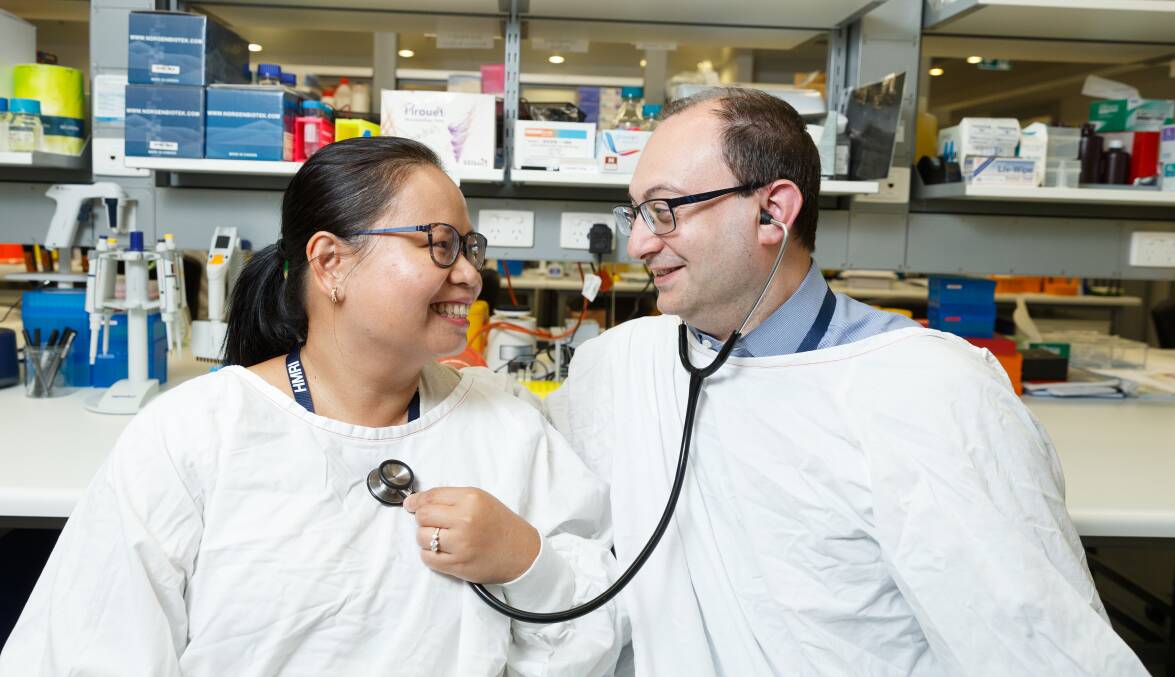
A GRANT of almost $800,000 will help University of Newcastle researchers tackle one of the most deadly afflictions facing cancer patients.
The Cancer Institute of NSW grant will fund research into cancer-related heart disease, the second highest leading cause of death for patients with cancer behind that disease itself.
Professor Aaron Sverdlov, recipient of the Institute's new Accelerated Research Implementation Grant, says his University of Newcastle team co-led by Professor Doan Ngo could support people through their cancer journey and reduce the impact of cancer-related heart disease.
"Heart disease disproportionally affects people with cancer, and we need to do everything possible to keep people healthy and well," Professor Sverdlov said.
"Through specialist surveillance clinics in Newcastle, Maitland and Tamworth, we hope to identify, monitor and treat cancer patients most at risk of heart disease, so they can undergo cancer treatment without interruption and have the best chance of survival."
Announcing the grant on Monday, Minister for Medical Research David Harris said targeted research was the first step toward better treatments and interventions that ultimately save lives.
"While significant progress has been made in understanding and treating cancer, it remains the leading cause of death in NSW with sadly one in two people set to be diagnosed with the disease in their lifetime," Mr Harris said.
"NSW is home to world-leading researchers, who are passionate and committed to making cancer a thing of the past. We're proud to be able to help two outstanding research teams progress their potentially life-changing work."
NSW chief cancer officer Professor Tracey O'Brien, the chief executive of the Cancer Institute of NSW, said someone in the state was diagnosed every 11 minutes.
"It's our obligation to do everything we can to save lives, and help people live free of cancer-related side effects and long-term health complications," Professor O'Brien said.
"Cancer research transforms and save lives. These ... grants will help close gaps in our understanding of cancer and hopefully lead to better health outcomes for more people across NSW."







